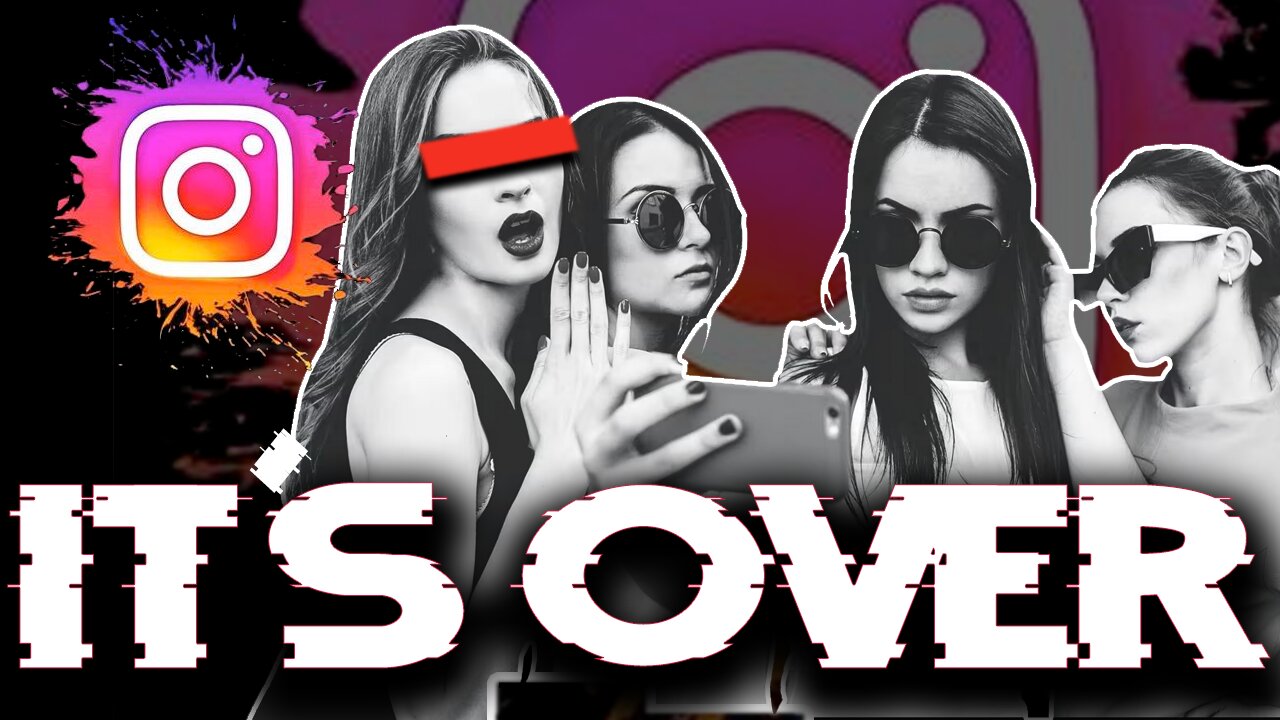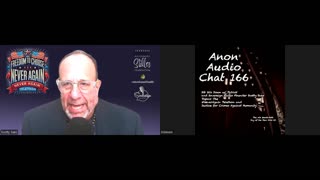Premium Only Content

Why Influencers Are Losing Their Grip on Reality
In 2024, social media influencers are facing a significant decline in trust and credibility. Once considered powerful figures in marketing, influencers are now losing their influence, particularly among younger generations like Gen Z. This change is due to the rise of "influencer fatigue," a growing disinterest in the repetitive and often inauthentic content produced by influencers across platforms like Instagram, TikTok, and YouTube. The influencers that once captivated audiences are now struggling to maintain their relevance, as consumers increasingly demand authenticity and transparency.
Research shows that influencers no longer hold the sway they once did. A 2024 study revealed that nearly half of teenagers and young adults aged 13-22 no longer trust influencers as they once did. In fact, 53% of respondents reported trusting the opinions of strangers over influencers, signaling a massive shift in consumer behavior. This decline in trust has been attributed to several factors, including oversaturation of sponsored content, fake influencers, and high-profile scandals.
The oversaturation of influencer marketing has made sponsored content feel repetitive and inauthentic. Social media platforms have become flooded with influencers promoting products in nearly identical ways, leading to a sense of monotony and disengagement from audiences. Consumers are bombarded with influencers who seem more interested in making money than in offering genuine product recommendations. According to recent studies, 47% of consumers report experiencing fatigue from seeing too many sponsored posts.
Another contributing factor to the decline in trust is the rise of fake influencers. Many influencers have resorted to buying followers and engagement metrics to boost their online presence. Studies show that up to 70% of some influencers’ followers may be fake. This has eroded trust in the influencer industry, as consumers are becoming more skeptical of influencers who may not even have the audience they claim to have. As a result, audiences are increasingly disillusioned with influencer culture and are turning away from influencers who seem more focused on brand partnerships than authentic engagement.
One of the most notable incidents contributing to the backlash against influencers was Tarte Cosmetics' Bora Bora influencer trip in February 2024. The brand sent thirty influencers on an all-expenses-paid trip to Bora Bora, where they stayed in luxurious bungalows and promoted Tarte products. While the trip was intended to enhance the brand’s image, it backfired, with many consumers criticizing Tarte for being tone-deaf during a time of financial instability. This incident reflected a growing disconnect between influencer culture and the realities of everyday life, further fueling the backlash against influencers.
The "de-influencing" movement has also gained significant traction as a response to the rise in influencer fatigue. This movement, popularized on TikTok, encourages followers to avoid excessive consumerism and instead focus on more mindful purchasing decisions. The hashtag #deinfluencing has garnered millions of views, signaling a shift in consumer values toward authenticity and genuine recommendations. Rather than endorsing products, de-influencers advocate for transparency and honesty, which resonates with younger generations who are increasingly skeptical of traditional influencer marketing.
The oversaturation of influencer promotions, combined with the rise of movements like de-influencing, has caused a shift away from influencer endorsements in favor of more authentic content. Millennials and Gen Z are increasingly drawn to creators who offer real, unfiltered opinions, as opposed to polished, branded content. This shift toward authenticity is reshaping the way audiences engage with social media and has led many brands to reconsider their reliance on influencers for marketing.
In conclusion, the rise of influencer fatigue and the increasing disillusionment with influencer culture reflect a broader shift in consumer preferences. As trust in influencers continues to decline, audiences are demanding more authenticity, transparency, and genuine engagement from the content they consume. The future of influencer marketing is uncertain, as brands and influencers must adapt to these changing expectations in order to remain relevant in a rapidly evolving digital landscape.
0:00 Declining Trust in Influencers
1:00 Why Influencers Are Losing Impact
2:03 Repetitive Sponsored Content
2:57 De-Influencing Movement
3:27 Fake Bot Engagement
4:13 Fake Charity Scandals
4:57 Influencer Scandals & Fraud
5:30 Forced Content Through Algorithms
6:28 Tai Lopez Here in My Garage
7:19 Everyone Promotes The Same Sponsors
7:57 Audiences Demand Authenticity
-
 7:55
7:55
Talk Nerdy Sports - The Ultimate Sports Betting Podcast
1 hour ago4/27/25 - Sunday Service: Vasil’s 10 Holy Locks & PrizePicks Resurrection 💥🧠
2.46K1 -
 18:15
18:15
World2Briggs
9 hours ago $5.30 earned10 Cities That Are Slowly Emptying Like a Sad Party
13.1K17 -
 11:34
11:34
Mrgunsngear
19 hours ago $1.86 earnedSiege Suppressors ROC556 Low Backpressure Silencer Review 🤫
11.7K5 -
 30:57
30:57
Clownfish TV
6 hours agoDisney Drops DEI and Goes PRO-AMERICA?!
15K23 -
 17:35
17:35
QNewsPatriot
19 hours ago(4/25/2025) | AUDIO CHAT 166 | SG Sits Down w/ Sovereign Radio Founder Scotty Saks: Vaxx Lawsuits and the #NeverAgain Telethon
22.6K15 -
 19:51
19:51
CatfishedOnline
3 hours agoSpouse Sends $50,000 To A Man Who Doesn't Exist 😱
11.5K2 -
 11:59
11:59
ariellescarcella
19 hours agoThe Dark Side Of "Queer Joy"
9.73K12 -
 1:12:39
1:12:39
Squaring The Circle, A Randall Carlson Podcast
1 day ago#045 What Are The Structures Beneath The Great Pyramids in Giza? Squaring the Circle: A Randall Carlson Podcast
14.3K5 -
 2:08:05
2:08:05
Badlands Media
1 day agoDevolution Power Hour Ep. 349: Trump’s Geopolitical Gambits, Sports Psyops, and the Regime’s Unraveling
125K109 -
 1:08:36
1:08:36
Man in America
20 hours agoUS, China, Israel & the Battle for the New World Order w/ Boone Cutler
145K143